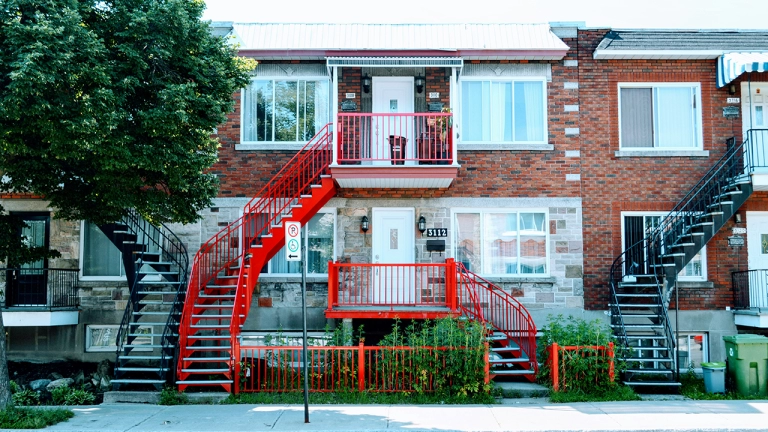Thinking about selling your home? Wondering when the best time might be?
Timing can significantly impact your home selling experience, influencing everything from the price you can fetch to how quickly your property moves off the market.
In this article, we’ll look into the various factors that determine the best time to sell your home, providing insights to help you make the most informed decision possible. Whether you’re aiming for maximum profit or a fast sale, understanding the nuances of timing in the real estate market can make all the difference.
Let’s get started!
Seasonal Factors

When it comes to selling your home, the time of year can have a significant impact on your success. Let’s take a closer look into how each season can influence the home-selling process:
SPRING
Pros: Spring is often considered the best time of the year to sell a home. The weather is warming up, flowers are blooming, and buyers are emerging from winter hibernation, ready to start their home search. With the nicer weather also comes nicer spring curb appeal which can help support the home selling process.
Cons: With more homes hitting the market in spring, competition can be fierce. It’s essential to make your property stand out with attractive curb appeal and strategic pricing. You may also want to consider new marketing strategies and tools. For example, in Ontario, you’re now able to share the contents of your offer. Having an open and transparent offer process – especially when multiple offers are involved – may allow you to get a higher price for your home.
SUMMER
Pros: Longer days and warmer weather can make it easier for buyers to attend open houses and viewings. Families often prefer to move during the early summer months to minimize disruption to the school year.
Cons: The summer market can be competitive, especially in popular areas such as Mississauga, Etobicoke, and Toronto when many families and sellers are also looking to sell their house. It’s crucial to price your home correctly and ensure it’s in top condition to attract buyers.
FALL
Pros: Fall can be a great time to sell, as buyers who missed out on summer deals are still active in the market. The cooler weather can also make it more comfortable for prospective buyers to explore properties. During the fall months, many sellers who haven’t sold during the summer and spring months are more focused on the holidays. This time of the year is usually the last push before the market slows down going into the winter months.
Cons: With the holiday season approaching, some buyers may be more focused on festivities than house hunting. It’s important to maintain a balance between seasonal decor and keeping your home show-ready when it comes to selling your home in October and September.
WINTER
Pros: While winter is typically the slowest season for home sales, serious buyers are still active. There’s often less competition from other sellers during the winter months, giving your home a better chance to stand out. If you’re confident in the product you’re offering and have strong winter curb appeal, you should have no problem selling your home.
Cons: The colder weather, shorter days, and busy holiday season in the winter months can make it challenging to showcase your home effectively. However, prospective buyers who brave the winter weather are often more motivated to make a purchase.
Understanding how each season can affect the real estate market can help you strategically time your home sale for maximum impact. Whether you’re aiming to capitalize on peak selling seasons or looking to take advantage of less competition, consider the seasonal factors that align with your goals and circumstances.
Real Estate Market Conditions

In the world of real estate, understanding the current market conditions is one of the most important things to consider for a successful home sale. Let’s take a closer look at how various factors within the market can influence your selling strategy:
Supply and Demand
In any market, the balance between supply and demand plays a crucial role in determining the dynamics of home sales.
In a seller’s market, where demand for homes outweighs the supply of available properties, sellers typically have the upper hand. Properties tend to sell quickly, often resulting in multiple offers and potentially driving up the sale price.
On the other hand, in a buyer’s market, where there are more homes available than there are buyers, sellers may face stiffer competition. Pricing your home competitively and showcasing its value effectively become essential strategies for attracting buyers in such conditions.
Pricing Trends
Keeping a pulse on pricing trends in your local market is essential when deciding the optimal time to sell your home. Are home prices steadily rising, or are they plateauing? Understanding these trends can help you determine the best pricing strategy to maximize your return on investment.
Collaborating with real estate professionals to conduct a comparative market analysis (CMA) or a free home evaluation can provide valuable insights into the current value of your home and help you devise a pricing strategy that aligns with market conditions.
By staying informed about the ever-changing landscape of real estate market conditions, you can position yourself for success when selling your home. In our next section, we’ll delve into additional factors that can influence your home selling experience.
Personal Circumstances

In addition to external market factors, your own personal circumstances should also play a significant role in determining the optimal time to sell your home. Here are some key considerations to keep in mind:
Family Needs
Your family’s needs and circumstances should also factor into your decision to sell your home.
Are you expanding your family and in need of more space?
Or perhaps your children have moved out, and you’re looking to downsize.
Consider how your current living situation aligns with your family’s needs and future plans to determine the best time to sell.
Timeline for Moving
Consider your timeline for moving when deciding when to sell your home.
Do you have a specific deadline to relocate for work or other commitments?
Or are you flexible in your moving timeline?
Understanding when you need to vacate your current home can help you strategize the timing of your sale and coordinate with your future housing plans.
Emotional Preparedness
Selling a home can be an emotional process, especially if you have a strong attachment to your property. Take stock of your emotional readiness to sell and consider how you’ll handle the inevitable ups and downs of the selling process.
Having a clear understanding of your emotional preparedness can help you navigate the challenges of selling your home with confidence.
By taking into account your personal circumstances alongside external market factors, you can make a well-informed decision about when the best time is to sell your home.
Economic Factors

Economic conditions at both the national and local levels can have a significant impact on the real estate market and influence the timing of your home sale. Here are some key economic factors to consider:
Job Market
The health of the job market in your area can directly impact homebuying activity. Strong job growth and low unemployment rates tend to stimulate demand for housing, as people feel more confident about making long-term financial commitments like buying a home.
Conversely, economic downturns or job losses may lead to decreased demand and slower home sales.
Interest Rates
Interest rates play a critical role in housing affordability and buyer demand. Lower interest rates can make homeownership more accessible by reducing mortgage payments, thereby increasing buying power and stimulating home sales.
On the other hand, rising interest rates can have the opposite effect, potentially dampening demand and slowing sales activity.
Consumer Confidence
Consumer confidence, as measured by indices like the Consumer Confidence Index (CCI), reflects people’s perceptions of the overall economy and their financial outlook.
High levels of consumer confidence can lead to increased spending and investment, including in real estate.
Low consumer confidence may result in cautious spending behaviour and reduced demand for housing.
GDP Growth
Gross Domestic Product (GDP) growth is another key indicator of economic health that can influence the real estate market.
A strong GDP growth rate typically correlates with increased consumer spending, investment, and job creation, all of which can bolster housing demand and drive home sales.
Sluggish GDP growth or economic contraction may lead to decreased consumer spending and weaker housing market activity.
Inflation
Inflation, or the rate at which prices for goods and services rise over time, can impact the purchasing power of consumers and affect housing affordability.
Moderate inflation can be beneficial for the real estate market, as it can lead to gradual increases in home values and stimulate investment. However, high inflation rates may erode purchasing power and deter buyers, while deflation can lead to declining home values and reduced demand.
Government Policies
Government policies and regulations can also influence the real estate market.
Changes to tax laws, mortgage lending regulations, and housing policies can have both short-term and long-term effects on home sales and prices.
By considering these economic factors alongside other market indicators and your personal circumstances, you can make a more informed decision about when to sell your home.
Property-Specific Factors

Beyond external market conditions and economic factors, specific characteristics of your property can also influence the timing of your home sale. Here are some key property-specific factors to consider:
Property Condition
The condition of your property plays a significant role in its marketability and saleability. Homes that are well-maintained, updated, and move-in ready tend to attract more buyers and command higher prices. Consider investing in repairs, upgrades, and staging to enhance your home’s appeal and increase its value before listing it for sale.
Location
Location is a critical factor in real estate, and it can greatly impact your home’s desirability and sale price. Homes located in desirable neighbourhoods with good schools, amenities, and transportation options typically sell more quickly and at higher prices. Conversely, properties in less desirable or declining neighbourhoods may take longer to sell and may require price adjustments to attract buyers.
Property Type
The type of property you’re selling can also influence the timing of your sale. Single-family homes, semi-detached homes, condos, lofts, penthouses, townhouses, and multi-family properties each have their own market dynamics and appeal to different types of buyers. Understanding the demand for your property type in your local market can help you determine the best time to sell.
Home Features and Amenities
Unique features, amenities, and upgrades can set your home apart from others on the market and attract the right buyer. Features such as updated kitchens and bathrooms, energy-efficient appliances, outdoor living spaces, and smart home technology can add value and appeal to potential buyers.
Highlighting these features in your marketing materials can help generate interest and command higher offers – potentially even bidding wars.
Seasonal Considerations
Certain property-specific factors, such as a swimming pool, fireplace, or outdoor living space, may be more appealing to buyers during specific seasons.
For example, a pool may be a selling point in the summer but less desirable in the winter.
Consider how seasonal factors may impact the marketability of your property and adjust your selling strategy accordingly.
By considering these property-specific factors alongside external market conditions and economic indicators, you can determine the optimal timing and approach for selling your home.
Financial Goals

Determining the best time to sell your home also involves considering your financial goals and objectives. Here are some key financial factors to keep in mind:
Equity Position
Your equity position in your home, or the difference between your home’s market value and the amount you owe on your mortgage, can impact your decision to sell.
If you have built up substantial equity in your home, selling at the right time could allow you to cash out and use the proceeds for other financial goals, such as purchasing a new home, investing, or paying off debt.
Return on Investment (ROI)
Assessing the potential return on investment (ROI) of selling your home is essential.
Consider the costs associated with selling, such as real estate agent commissions, closing costs, and any necessary repairs or renovations, and compare them to the potential sale price of your home.
Working with a real estate professional can help you estimate your net proceeds and determine whether selling now aligns with your financial goals.
Tax Implications
Consider the tax implications of selling your home, including potential capital gains taxes.
Depending on your specific circumstances and how long you’ve owned your home, you may be eligible for certain tax exemptions or deductions. You may be even eligible for tax refunds!
Consult with a tax professional to understand the tax consequences of selling your home and explore strategies to minimize your tax liability to make sure you walk away with the most money.
Future Housing Plans
Your future housing plans should also factor into your decision to sell.
Consider whether you plan to purchase another home after selling your current one and how the timing of your sale aligns with your housing needs and preferences.
If you’re downsizing, upsizing, or relocating to a different area, timing your home sale accordingly can help facilitate a smooth transition.
Long-Term Financial Goals
Evaluate how selling your home fits into your long-term financial goals and objectives.
Consider whether selling now would help you achieve other financial milestones, such as saving for retirement, funding education expenses, or building wealth through real estate investing.
Assessing the broader implications of selling your home can help you make a well-informed decision that aligns with your financial priorities.
As a home seller, by considering these financial goals alongside other factors such as market conditions, property-specific considerations, and personal circumstances, you can narrow in on the best and worst time to sell your home.
Final Thoughts On The Best Time To Sell Your House

Determining the best time to sell your house involves careful consideration of various factors, including market conditions, economic indicators, personal circumstances, and property-specific factors. By taking a holistic approach and weighing these factors against your goals and timeline, you can make an informed decision that maximizes your chances of a successful home sale.
Whether you’re aiming to capitalize on peak selling seasons, leverage favourable market conditions, or align your sale with personal milestones, it’s essential to approach the process with careful planning and expert guidance.
As a seasoned real estate professional, I am here to help you navigate the complexities of the real estate market and achieve your home-selling goals.
If you’re considering buying or selling a home in the near future, don’t hesitate to reach out. I have the knowledge, experience, and resources to guide you through every step of the process and ensure a smooth and successful transaction. Contact me today to schedule a consultation and take the first step toward achieving your real estate objectives.
Thank you for considering me as your trusted real estate agent. I look forward to the opportunity to assist you with all your real estate needs.



